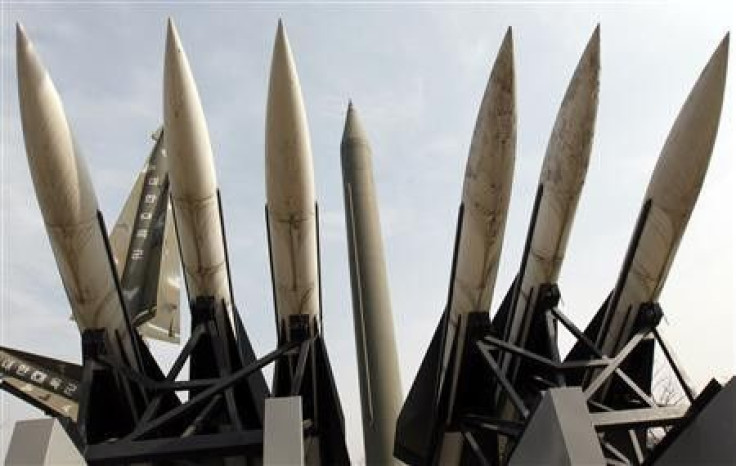China Responds to North Korean Missile Test Announcement, Urges 'Restraint'

North Korea’s National Defense Commission announced on Tuesday the planned testing of a nuclear missile aimed “against the U.S., sworn enemy of the Korean people.” The testing would be a breach of a United Nations Security Council resolution extending sanctions against Kim Jong-un's regime.
Now, perhaps North Korea's only significant ally and permanent member of the U.N. Security Council, China, is speaking out.
China’s Foreign Ministry spokesman Hong Lei told reporters that all parties involved should work to find a solution agreeable to all and to react to the announcement with caution or risk threatening stability.
“The DPRK’s satellite launch, as well as the possible nuclear test, highlight the urgency and importance of settling relevant issues on the Korean peninsula,” Hong said in a press conference. In December, the secretive regime launched a rocket that it said was meant to put a satellite into orbit for civilian use, but the U.S. and South Korea say it was a cover for an intercontinental ballistic missile test.
“We hope all parties will bear in mind the peace and stability of the Korean Peninsula, exercise calmness and restraint and avoid actions that might escalate tension,” Hong added.
Though China has exercised its veto power in the Security Council regarding sanctions on North Korea in the past, it did back a resolution passed on Tuesday which expanded the number of North Korean entities on the U.N. sanctions list. Despite the lobbying of the U.S. and other member states, the new resolution did not include new penalties on North Korea.
The passing of the resolution is likely what triggered North Korea’s reaction to announce efforts to strengthen nuclear weapons and missile capabilities.
“The UNSC should apologize for its crime of seriously encroaching upon the independence of a sovereign state ... and repeal all the unreasonable ‘resolutions’ at once,” the Korean Central News Agency reported.
According to an article in the UK's Telegraph, North Korea, which historically has rarely used diplomatic channels to resolve problems, is done talking and is even willing to resort to combat. Pyongyang has declared that talks hoping to remove weapons from North Korea are no longer an option, and now it will carry out a “nuclear test of a higher level.”
“Settling accounts with the U.S. needs to be done with force, not with words, as it regards jungle law as the rule of its survival,” the National Defense Commission announced.
But China itself views the development of North Korean nuclear weapons as a threat and has been more reluctant than in the past to back its North Korean allies. Xi Jinping, China's Communist Party chief and soon-to-be president, spoke to a visiting South Korean delegation, including President-Elect Park Geun-Hye, and said that he opposes the North Korean regime developing nuclear arms or other weapons of mass destruction.
Those words carry serious weight; China is the North’s biggest trade partner and therefore could be the only nation able to influence Pyongyang’s top leaders.
© Copyright IBTimes 2024. All rights reserved.












